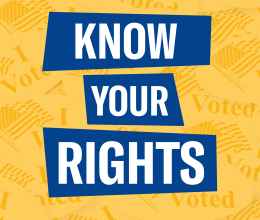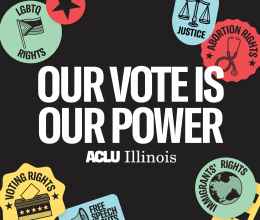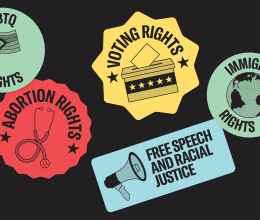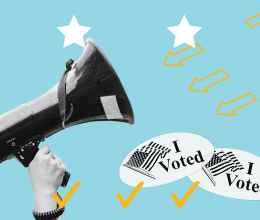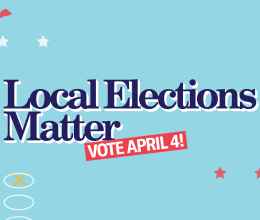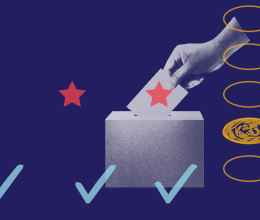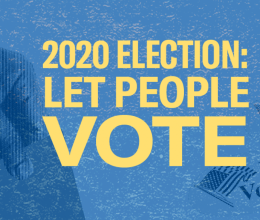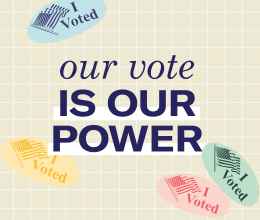
We sent questionnaires to the Democratic, Libertarian and Republican candidates running for Attorney General in Illinois, asking their positions on 11 important civil liberties issues. Read their responses before you vote on November 6. Click here to skip ahead to their answers.
 |
|
The Illinois Attorney General (AG) is our state’s chief legal officer, and has the constitutional duty of acting as legal adviser to, and legal representative of, state agencies. The AG provides legal advice to the Governor and to state agencies about regulations, enforces civil rights laws to protect against discrimination, works with members of the General Assembly in Springfield to pass laws that improve the lives of Illinois citizens, advocates on behalf of all of the people of Illinois, and goes to court to make sure that state laws are followed and respected. The AG is also described as the "people’s lawyer" who serves as our advocate for consumer matters, protects our investments in charitable organizations and institutions, initiates and oversees prosecution of government fraud and conflicts of interest, and advises the state officials who serve us.
|
 |
|
The 2018 AG election will have significant implications for civil rights and civil liberties issues, including immigration, police practices, criminal justice reform, drug policy, reproductive and LGBTQ rights, the interpretation and application of the freedom of information law and internet freedom. The AG will also be responsible for pushing back against the Trump administration's anti-civil liberties initiatives. |
 |
|
 |
ERIKA HAROLD |
 |
BUBBA HARSY |
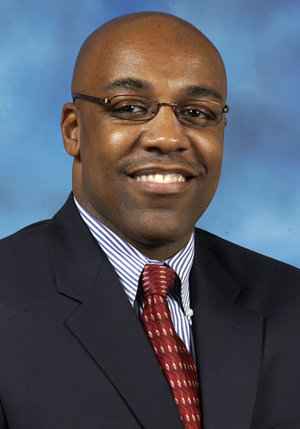 |
KWAME RAOUL |
 |
1. STATE CONSTITUTIONAL REFORM:
A critical role of the Illinois Attorney General is to protect fundamental freedoms for our state’s residents. The Illinois Constitution is more modern than the Federal Constitution and, therefore, more specific and expansive in terms of freedoms afforded to Illinoisans.
Do you believe that the Attorney General can seek added protections by invoking the provisions of the Illinois Constitution rather than the federal constitution? If you would use the Illinois Constitution in this expansive manner, how? If no, why?
2. TRUMP ANTI-CIVIL LIBERTIES AGENDA:
Many state Attorneys General have pushed back against the Trump administration’s anti-civil liberties initiatives. These efforts have included litigation challenging the administration’s policies, support for state legislation and policies designed to mitigate the harm caused by those policies, and assuming civil rights enforcement responsibilities that the administration has abandoned.
Will you respond to the Trump administration’s efforts to roll back criminal justice reform, police reform, prison reform, voting rights, immigrants’ rights, LGBTQ rights, reproductive rights, freedom of the press, and other civil rights and civil liberties? If so, how?
3. IMMIGRATION:
In the past eighteen months, the federal government has deployed increasingly cruel, unnecessary, and in some cases unlawful enforcement tactics against immigrants and their families. These have included a ban on travel to the U.S. for people from predominantly Muslim countries, stops and arrests without individualized suspicion of wrongdoing, raids that indiscriminately sweep up everyone present at a workplace or other location; and enforcement actions at courthouses that target people appearing as witnesses or for other important court business.
Will you take steps to protect documented and undocumented immigrants in Illinois from harmful or unlawful immigration enforcement practices? If so, how? If not, why?
4. VOTING:
This past June, the U.S. Supreme Court upheld Ohio’s draconian process for removing voters from the rolls if they fail to vote for two years and do not return a postcard mailed to their address.
Will you protect Illinois voters from “purges” that may remove eligible voters from the rolls, while retaining voter security? If so, how? If not, why?
5. RELIGION:
Increasingly, individuals and other entities claim their religious beliefs justify various actions, even when the actions impact others. This can be seen when some businesses claim a right to discriminate against LGBTQ people and others in the provision of goods and services and when health care providers impose religiously-based restrictions on the services and information offered to patients.
Will you oppose attempts to use religion as a license for discrimination prohibited by the Illinois Human Rights Act? If so, how? If no, why not?
6. OPEN GOVERNMENT:
The goal of government transparency and accountability embodied in the Illinois Freedom of Information Act (FOIA) is frequently undermined when government entities delay responses to requests, claim unwarranted exemptions, or fail to respond at all.
Will you support Illinoisans’ right to full and prompt access to the public records needed to understand the operation of state and local government and hold public officials accountable? If so, how? If not, why?
7. CRIMINAL JUSTICE:
74% of Illinois voters believe our criminal justice system is “broken.” In December 2016, a bipartisan Commission on Criminal Justice and Sentencing Reform recommended specific reforms to safely reduce the prison population by 25%. Yet two years later, Illinois still has one of the nation’s most overcrowded prison systems, and many of the Commission’s most significant recommendations still have not been enacted into law, including:
- Reducing the sentence classification for all drug crimes by one class;
- Raising the felony threshold dollar amounts for retail theft and other nonviolent property crimes from their current levels to $2,000; and
- Allowing inmates who are currently required by statute to serve 85% or 100% of their sentences to earn additional sentence credit to reduce the length of their prison stays.
Are you committed to working with the legislature to enact criminal justice reform measures? If so, what specific reforms do you consider your highest priorities, and what will you do to ensure that they are enacted? If not, why?
8. TRANSGENDER RIGHTS:
Despite progress in public understanding about gender dysphoria and inclusion of persons who are transgender in popular culture, discrimination against those who are transgender takes many forms and remains pervasive in many parts of society. Some health care plans continue to retain specific, discriminatory prohibitions on coverage of the health care necessary for the treatment of gender dysphoria. Employees who are transgender face discrimination as they transition (and after) at work. Students who are transgender face a myriad of problems, from the inability to execute a name change on school records to the ability to use gender-appropriate pronouns, or fully access and utilize the restroom and locker room consistent with a student’s gender identity. Persons who are transgender face harsh and discriminatory treatment from police.
Will you work to affirm and protect transgender people from discrimination by: (1) fighting to uphold federal court decisions holding that discrimination against transgender people violates federal laws prohibiting sex discrimination; and (2) taking steps to ensure that Illinois laws, such as the Human Rights Act, are interpreted broadly to affirm and protect people who are transgender from discrimination in Illinois, including in employment, their use of educational and other public facilities, access to public and private health care, their treatment by law enforcement personnel, and in prisons, juvenile facilities, and other forms of state custody? If so, how? If not, why?
9. POLICE PRACTICES:
The national dialogue about the relationship between police and the communities they serve is very much active here in Illinois, specifically Chicago. Tensions between the Chicago police and many of the communities served by police run high today. In 2017, the U.S. Department of Justice issued a scathing report about practices and training in CPD, problems that exacerbate and heighten the tensions between police and – especially – communities of color. It is clear that Chicago’s policing system if broken and in need of systemic reform, with federal court oversight. The current Attorney General is negotiating a federal consent decree with the City of Chicago to reform the Chicago Police Department.
Will you pledge to urgently pursue and enforce a comprehensive consent decree with the City of Chicago, and involve community and civil rights groups in the monitoring and enforcement of the consent decree reforming the Chicago Police Department? If so, how? If not, why?
10. REPRODUCTIVE RIGHTS:
Access to reproductive health care in Illinois has become more critical than ever, as threats increase at the federal level and states throughout the Midwest pass increasingly harmful restrictions.
Will you commit to using the power of your office to protect and expand access to the full range of reproductive health care and information, including contraception and abortion, for all people in Illinois? If so, how? If not, why?
11. WOMEN'S RIGHTS:
Despite the progress already made in the struggle for gender equality, women still face violence, discrimination, and institutional barriers to equal participation in society. Gender bias continues to create significant barriers.
Will you commit to using the full extent of your authority to enforce state and federal civil rights laws in order to address policies and practices that have a discriminatory impact on women and/or are based on sex stereotyping? If so, how? If not, why?
